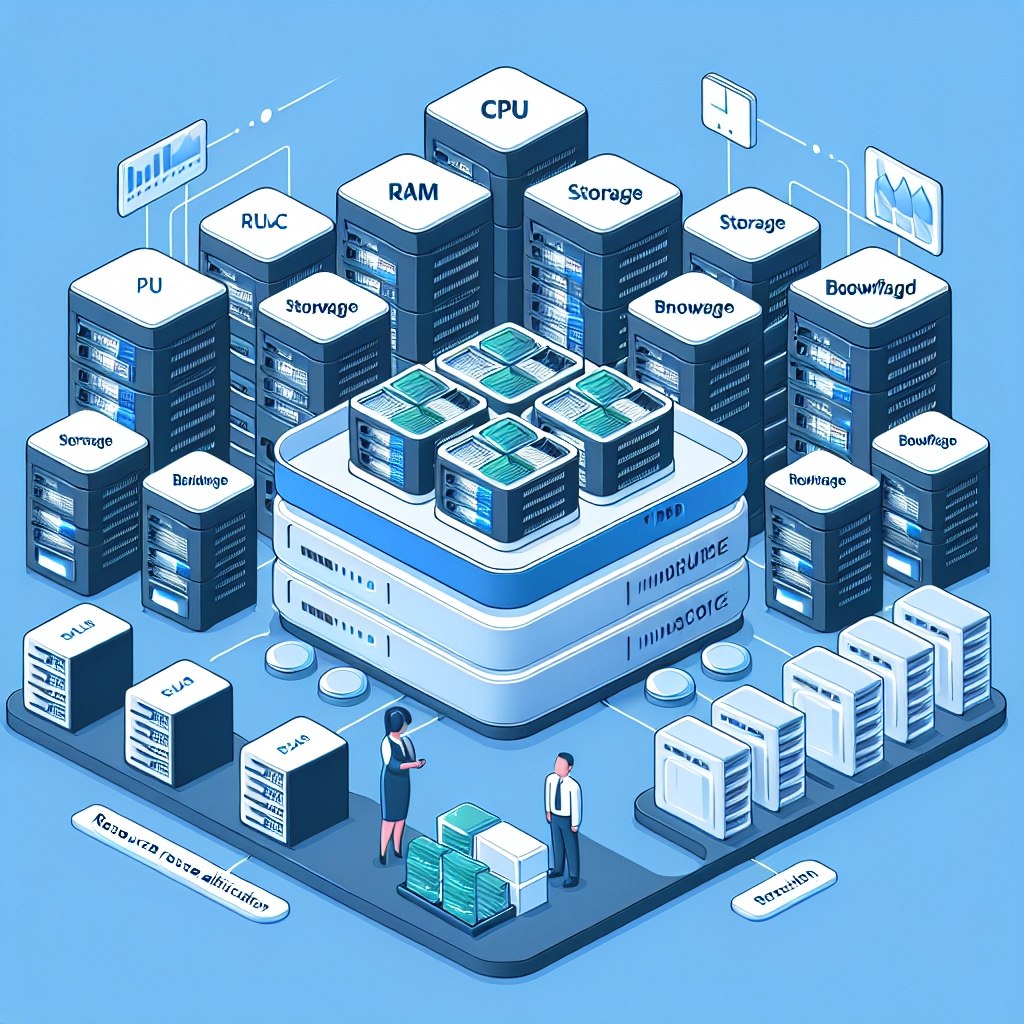Understanding Resource Allocation in VPS Hosting
When it comes to web hosting, many options are available, but one of the most popular among those who need more than standard shared hosting is Virtual Private Server (VPS) hosting. VPS is a middle ground between shared hosting and dedicated servers. It offers the flexibility and control of a dedicated environment but at a fraction of the cost. One of the key topics that often arises when discussing VPS hosting is resource allocation. So, let’s dive into what that means and why it matters for your website!
What Is VPS Hosting?
Before we get into resource allocation, let’s take a quick refresher on what VPS hosting actually entails. A VPS server is created by partitioning a physical server into multiple virtual servers. Each of these partitions functions independently and has its own operating system, allowing you to install software and customize it to meet your specific needs.
While shared hosting puts multiple users on a single server, potentially impacting performance based on others’ resource use, VPS gives you your own dedicated slice of the server’s resources. It’s like having your own loft in a multi-unit building—where you share the address but have your own space to design and manage.
What Is Resource Allocation?
In the context of VPS hosting, resource allocation refers to the method of distributing server resources—like CPU, RAM, disk space, and bandwidth—across the various virtual servers running on a physical server. Each VPS is allocated a certain amount of these resources based on the plan you choose, and this allocation plays a significant role in the performance and reliability of your website.
Key Resources in VPS Hosting
-
CPU (Central Processing Unit): This is the brain of your server. It determines how quickly your server can process requests. More CPU resources mean better performance and faster speeds, especially during high traffic periods.
-
RAM (Random Access Memory): RAM influences the speed at which your server can retrieve and process data. If your application requires significant processing power, having ample RAM can help improve load times and overall performance.
-
Disk Space: This is the storage available for your files, including the operating system, applications, and databases. Opting for SSD (Solid State Drive) can offer significantly faster data retrieval speeds compared to traditional HDD (Hard Disk Drive).
-
Bandwidth: This reflects the amount of data that can be transferred to and from your server. Higher bandwidth can support more traffic, which is essential for growing websites.
Why Resource Allocation Matters
Resource allocation is crucial for a number of reasons:
-
Performance: You’ll want your website to load quickly and handle traffic without crashing. Proper resource allocation means you have enough CPU power and RAM to manage your visitors efficiently.
-
Scalability: As your website grows, you might need to adjust your resource allocation. With VPS hosting, it’s typically easier to scale up your resources compared to shared hosting solutions, allowing you to adapt to changing demands.
-
Cost Efficiency: Understanding how much you actually need can help you avoid over- or under-provisioning. This not only saves you money but also ensures that you’re not paying for resources you’re not using.
-
Isolation: One of the significant advantages of VPS over shared hosting is isolation. In a VPS environment, even if another VPS consumes too much CPU or RAM, it won’t affect your server’s performance, provided your allocation is adequate.
Choosing the Right VPS Plan
When selecting a VPS plan, it’s essential to evaluate your website’s needs. Are you running a simple blog, a bustling e-commerce store, or a web application? Each of these will have different resource requirements. Some web hosting providers allow you to customize your plan, letting you allocate more resources based on your specific needs.
Always check the terms of service, and ensure you understand how your resources are allocated. Look for providers that provide monitoring tools, so you can track your server’s usage and adjust your plan accordingly.
In the world of VPS hosting, understanding resource allocation is integral to the success of your website. It dictates performance, scalability, and reliability—elements that are crucial for user experience. By carefully assessing your needs and picking the right plan, you can create a seamless environment for your visitors. After all, keeping those virtual doors open and running smoothly is the ultimate goal!
Welcome to DediRock, your trusted partner in high-performance hosting solutions. At DediRock, we specialize in providing dedicated servers, VPS hosting, and cloud services tailored to meet the unique needs of businesses and individuals alike. Our mission is to deliver reliable, scalable, and secure hosting solutions that empower our clients to achieve their digital goals. With a commitment to exceptional customer support, cutting-edge technology, and robust infrastructure, DediRock stands out as a leader in the hosting industry. Join us and experience the difference that dedicated service and unwavering reliability can make for your online presence. Launch our website.

